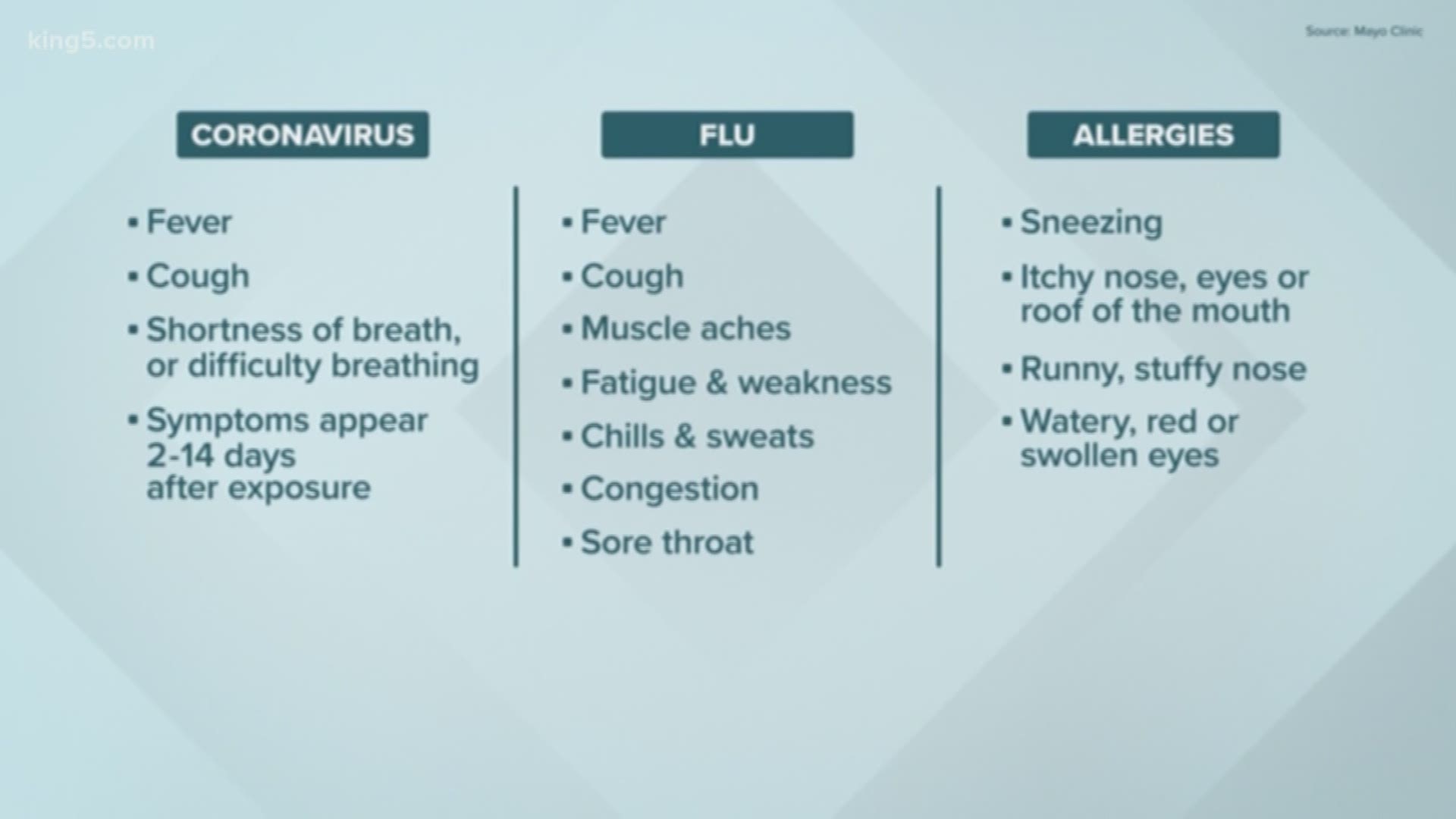UPDATE: Gov. Jay Inslee issued a statewide order to stay-at-home to help slow the spread of the coronavirus. The order went into effect Monday night for residents and will last at least two weeks.
People may still run imperative errands and go outside, such as walks and gardening, while maintaining a safe social distance from others. Only essential businesses may remain open to the public.
Grocery stores, pharmacies, gas stations and restaurants offering take-out are among the essential businesses that will be allowed to remain open. State officials urged residents to not rush these businesses and to not hoard supplies.
The previous story is below:
At least three mayors in western Washington have issued a stay-at-home order for their residents in response to the coronavirus (COVID-19) pandemic.
Lake Stevens Mayor Brett Gailey mandated that residents and business owners stay at home, except for essential business, and limit their interactions with others to slow the spread of coronavirus. The order goes into effect Monday, March 23 at 11:59 p.m.
Edmonds Mayor Mike Nelson issued an order that went into effect at midnight on Monday, and Everett Mayor Cassie Franklin issued a mayoral directive on Friday for residents to stay at home starting Monday at noon.
According to Nelson, Edmonds has the highest population of seniors in Snohomish County -- 25% of their population is made up of the elderly.
Both orders from the mayors direct residents and business owners in Everett and Edmonds to stay at home and limit all non-essential activities outside of the home.
But the order doesn’t mean you cannot leave your house. So, what is considered an essential activity or business?
Essential activities include, but are not limited to:
- Errands to maintain health and safety like going to the doctor or pharmacy.
- Getting the necessary services or supplies for you or your family. This includes gas stations and going to the grocery store for food, pet supplies, or items necessary for staying at home.
- Engaging in outdoor activities like walking, hiking, or running. However, residents should practice social distancing and stay 6 feet away from others while outside to help slow the spread of COVID-19.
- Caring for a family member in another household.
- Caring for the elderly, minors, people with disabilities or other vulnerable persons.
Essential businesses and government services include, but are not limited to:
- Health care operations, including all training and educational programs and home health workers.
- Essential infrastructure, including construction of housing (residential and mixed-use), industrial and commercial projects currently underway; and operation of public transportation and utilities.
- Businesses that supply products or services necessary to both maintain the functionality and/or safety of equipment, facilities, utilities, healthcare, national defense, all modes of transportation and critical supply chains used in other essential businesses.
- Grocery stores, farmers' markets, food banks, convenience stores.
- Food and beverage providers offering curbside pick up, delivery, take out or drive-thru services.
- Businesses that provide necessities of life for economically disadvantaged individuals and shelter facilities.
- Pharmacies, health care supply stores, and health care facilities.
- Gas stations and auto repair facilities.
- Banks.
- Garbage collection.
- Hardware stores, plumbers, electricians and other service providers necessary to maintain the safety, sanitation and essential operation of residences and other essential businesses.
- Educational institutions, for the purposes of facilitating distance learning.
- Laundromats, dry cleaners, and laundry service providers.
- Businesses that ship or deliver groceries, food, and goods directly to residences.
- Childcare facilities providing services that enable essential employees to go to work.
- Roles required for any essential business to "maintain basic operations," which include security, payroll, and similar activities.
Police will not be out actively looking for people who violate the order.
The Centers for Disease Control and Prevention are also asking Americans to do their part to slow the spread of COVID-19. This includes practicing social distancing by staying at least 6 feet from other people, washing your hands with soap and water for at least 20 seconds as frequently as possible or using hand sanitizer, covering your coughs or sneezes and not shaking hands.
"It will only work if everyone complies...it really comes down to everyone doing their part," said Nelson.
What are coronavirus symptoms?
The symptoms of coronavirus are similar to the flu or colds. Symptoms include a fever, cough, and shortness of breath or difficulty breathing, according to the Washington State Department of Health.
The severity of symptoms ranges significantly. Some cases are very mild with symptoms similar to the common cold, and some cases are more like severe pneumonia that require hospitalization. Most deaths have been reported in older adults who had other health conditions, according to DOH.
Symptoms may appear as soon as two days after being exposed to the coronavirus or as long as 14 days.
A Washington call center has been set up to answer your questions about COVID-19. If you have questions about how the virus spreads, what is being done in Washington state, and what you can do if you have symptoms, call 1-800-525-0127 and press #.


